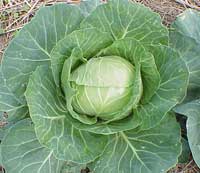 Eating cabbage may reduce the risk of lung cancer in some individuals. Previously, it was known that cruciferous vegetables could lower the risk of lung cancer, but the mechanism of action was not clear.
Eating cabbage may reduce the risk of lung cancer in some individuals. Previously, it was known that cruciferous vegetables could lower the risk of lung cancer, but the mechanism of action was not clear.
A study by the International Agency for Research on Cancer (IARC) indicates that consuming cabbage at least once a week may reduce cancer risk in individuals with two inactive gene types, which account for up to 70% of the population.
The two genes studied are GSTM1 and GSTT1, which typically help protect the body against certain toxins. Cruciferous vegetables such as cabbage, kale, and Brussels sprouts are rich in isothiocyanates, compounds that actively fight lung cancer.
Usually, isothiocyanates are eliminated from the body by enzymes produced by the GSTM1 and GSTT1 genes.
IARC researchers in Lyon, France, monitored 2,141 lung cancer patients and 2,168 healthy individuals from Poland, Slovakia, the Czech Republic, Romania, Russia, and Hungary, where cruciferous vegetables are essential in meals.
After examining DNA samples and dietary habits, no lung cancer protective effects were observed in individuals carrying both active gene types.
However, among those who consumed cruciferous vegetables at least once a week, individuals with only the inactive GSTM1 gene showed a 33% protective effect against lung cancer. Approximately half of the population carries this gene type.
Meanwhile, those with the inactive GSTM1 gene exhibited a 37% protective effect.
Notably, 10% of the population carrying both inactive gene types received up to a 70% protection rate.
Dr. Paul Brennan, one of the researchers involved in this study, stated that this data provides clear evidence of the lung cancer protective effect of cruciferous vegetables.
However, Professor Paulo Boffetta, also part of the research team, added that since everyone has consumed different amounts of cruciferous vegetables, it remains unclear what quantity yields the greatest benefit.
Professor Boffetta also noted that the lung cancer protective effects of cruciferous vegetables do not negate the harmful effects of smoking, the primary cause of lung cancer.
The risk of lung cancer in regular smokers is 20 times higher compared to non-smokers. Therefore, even with the consumption of cruciferous vegetables, the risk of lung cancer can only be reduced by half, and smokers still remain in the high-risk category. It is emphasized that quitting smoking and preventing relapse is essential.
Professor Stephen Spiro from the British Lung Institute commented that this research is fascinating and will continue to be explored further.
Lung cancer causes 33,000 deaths each year in the UK, and finding simple ways to help protect the population from this disease is enormously significant.


















































